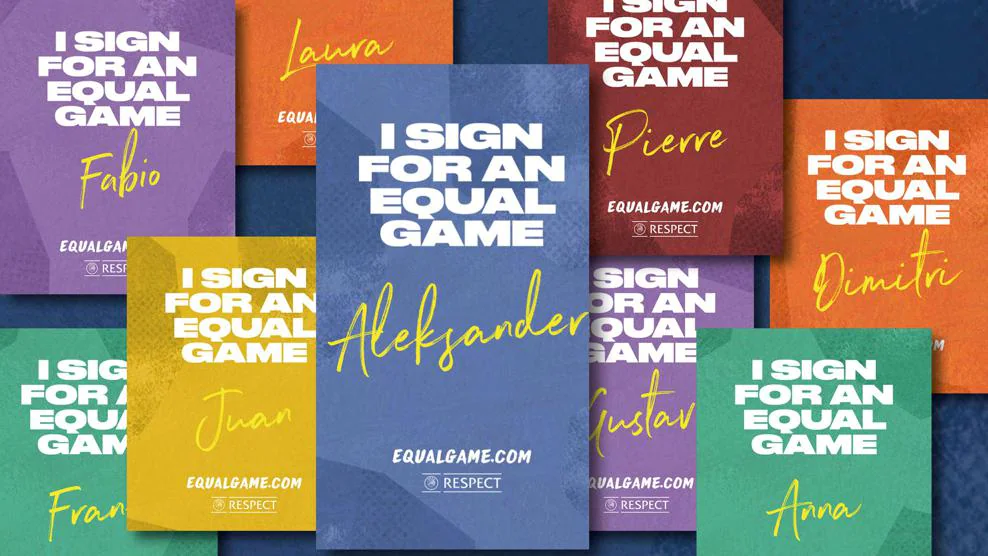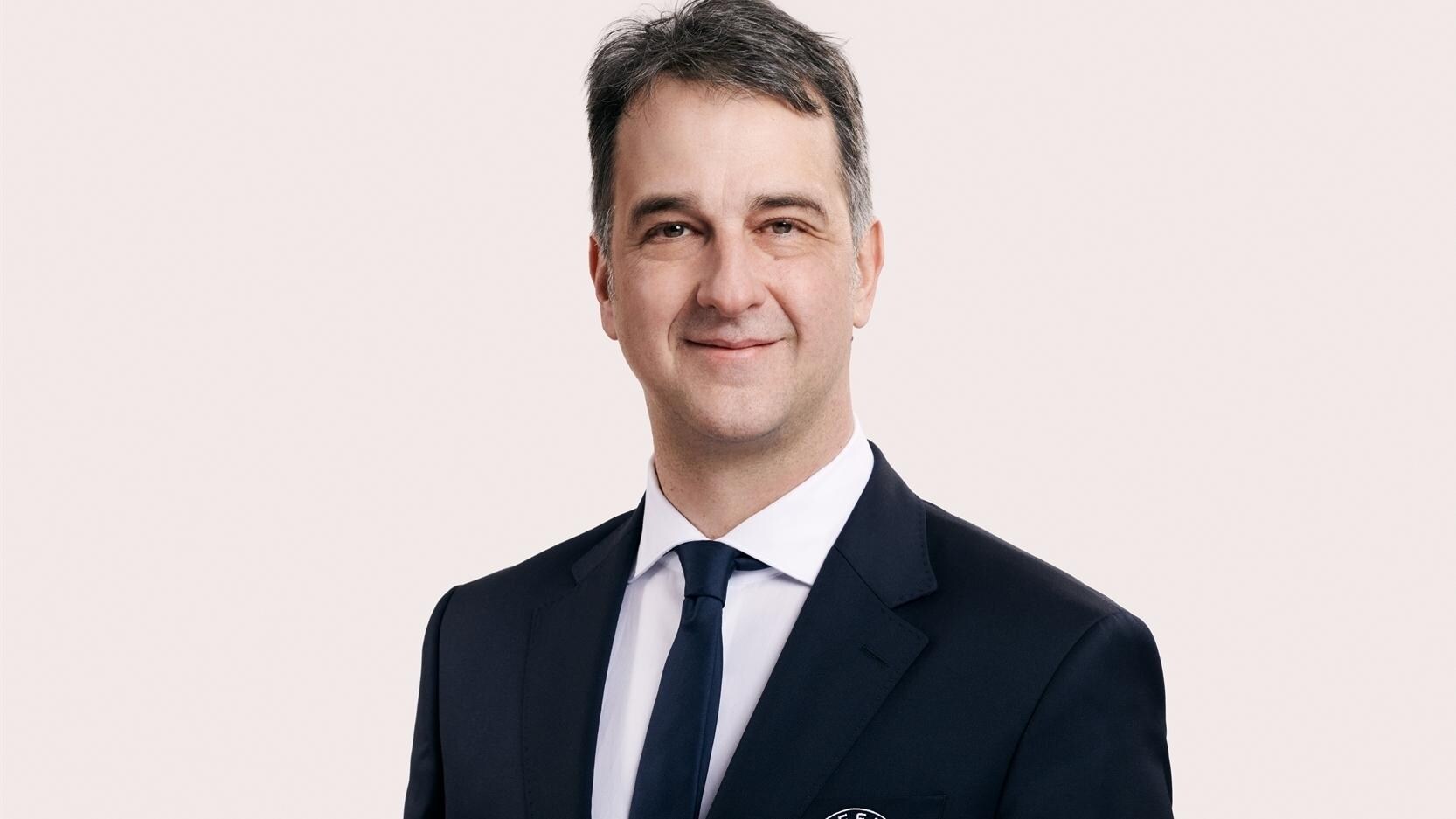World Football Summit speaks exclusively with UEFA director of football and social responsibility, Michele Uva, about racism in football and how the sport can play a fundamental role in shaping a better future for society. This interview features in the latest edition of WFS Digest, our insider’s guide to the latest and most relevant thoughts and practises from within the football industry. You can subscribe to WFS Digest HERE.
«Football must not simply intercept and follow sustainability and societal trends – it must anticipate and originate them.»
Michele Uva is an international sports manager who acts as UEFA’s director of football and social responsibility since January 2021. Former UEFA vice president and executive committee member until the end of 2020, he has devoted his entire career to professional sport in several contexts, disciplines and environments, acting as CEO in a number of different sports organisations: the Italian Football Association, the Italian Olympic Committee and at both Parma and Lazio, as well as basketball side Lottomatica Roma and volleyball trio Bologna, Treviso and Matera. An international consultancy expert in sports management and company reorganisation, he is also the author of six books about the industry and currently serves a lecturer for several masters courses organised by international universities and institutions. Mr. Uva has confirmed his presence as a speaker during our upcoming Football Innovation Forum, in Seville, on May 18th.
World Football Summit: What’s your perspective on UEFA and football’s role in the search for sustainability, one of today’s global buzzwords?
Michele Uva: There is no doubt that sustainability is gaining importance in society and football. Awareness of these issues is growing within member associations, fan groups, clubs, and leagues. As UEFA and European football form an intrinsic part of society, we are being called upon to contribute to the solution. And we can, because football has the unique ability to activate an enormous reach within one of the largest communities in Europe.
In the course of the season 2020-21, sustainability became a priority for UEFA. Under the guidance of UEFA’s Executive Committee and its Fair Play and Social Responsibility Committee, we established ‘Responsibility’ as the fifth pillar of its five-year strategy for European football development – to stand alongside Football, Trust, Competitiveness, and Prosperity. Building on that first signal, we developed in the second half of 2021 a ten-year sustainability strategy, titled Strength through Unity. The mission of our strategy is clear: to inspire, activate and accelerate collective action to respect human rights and the environment within European football. And to go beyond strategic intent, we have set a clear direction on the basis of a set of ambitious objectives and clear targets, in an open and transparent manner.
We focus on football and its impact on society. We prioritise issues that are relevant for European football, working with partners and institutions based on mutual convictions and trust, using our voices to raise awareness about the issues that matter, and building on the foundation of solidarity that has characterised our European football community for so many years.
We’re at the beginning of our long-term journey, guided by the belief that that sustainability supports the success of European football. But football must not simply intercept and follow sustainability and societal trends – it must anticipate and originate them.
WFS: Ending racism by 2030 is another relevant target, although it seems more aspirational than a reality. What effective measures can UEFA take to really make a change?
Uva: It’s indeed one of our aspirational targets, and we need to be ambitious to eradicate racism in all its forms on and around the pitch across European football.
We have four levels on which we can work to attain this: awareness through campaigns, which has been the main goal in the past, such as “Equal Game” and “No to Racism”. But awareness is not enough. The second area we can work on is engagement, setting educational programmes for our clubs, players and coaches. The next is the monitoring phase, making efforts to understand the data and what is happening in each country. Lastly, action plans with measurable activities in line with our targets.
WFS: Are punitive measures, such as closing stadiums, part of the plan?
Uva: This is a matter for the disciplinary area and legal teams. However, that’s a reaction. Within our Football and Social Responsibility Division we focus on prevention and education. We’re also mindful of the fact that the fight against racism is a battle that needs to be fought on online platforms, not only in stadiums, and we’re setting in motion targeted actions across UEFA events for the years to come, starting with the Women’s EURO 2022 in England.
WFS: Moving to another area of your work, what measures could reconcile the expansion of continental tournaments with the reduction in greenhouse gas emissions and other measures included in UEFA’s strategy?
Uva: We need to work on the reduction, but we know that emissions cannot be totally eradicated, as the clubs and the fans need to travel. The solution isn’t asking fans not to travel to attend a match, because football-related travel is only a very small part of tourism in Europe.
There are many dimensions within this strategy: environmental, economic, social – and sporting components, as competitions evolve over the years, at the request of clubs, for business purposes. We acknowledge that difficult trade-offs might have to be discussed and made, but it’s important to keep in mind the various dimensions that guide decision-making.

WFS: Is there anything specific in place looking ahead at Germany 2024?
Uva: In preparation for the UEFA Euro 2024 in Germany, we are looking to take specific steps to measure and benchmark the event’s sustainability performance, and a focus to reduce the emissions and the impact of our competition.
Our Event Social Responsibility strategy for this specific competition, which was presented in April 2021, sets out some priority areas, particularly around the environmental agenda. Just like with the UEFA sustainability strategy, it is not a final destination but a starting point to being catalysts and accelerators of change.
WFS: What can fans do to lower their environmental impact when they travel?
Uva: As I’ve said before, we’re just at a starting point in our mission, and we want to link awareness with innovation. Accelerating action also implies resorting to innovation.
In this regard, we believe, as we advocate in our joint climate campaign with the European Commission, that “every trick counts”, that each fan can do something small to reduce their impact on the environment. Small concrete actions that multiplied by millions are effective. That is what UEFA aims to catalyse.
It’s up to us to plan, develop, optimise and improve the return on investment of events from an economic, social, environmental and sportive point of view. This includes of course the engagement of fans and of host cities, creating sustainable solutions around mobility and numerous other facets connected to event-related travel.
WFS: How can UEFA assure that the European community follows its advice and example?
Uva: We’re aware of our responsibility and we know how big of an impact we have, so we need engagement with these topics. It’s important to spread the word, to raise awareness and to demonstrate commitment backed by actions to national associations, clubs, the media. We want to rally all stakeholders in our ecosystem. We cannot act alone. It’s a long-term investment and we want to lead by example. If we work together, we can reach the ambitious targets, and make European football even more attractive and successful.
This interview features in the latest edition of WFS Digest, our insider’s guide to the latest and most relevant thoughts and practises from within the football industry. You can subscribe to WFS Digest HERE.

